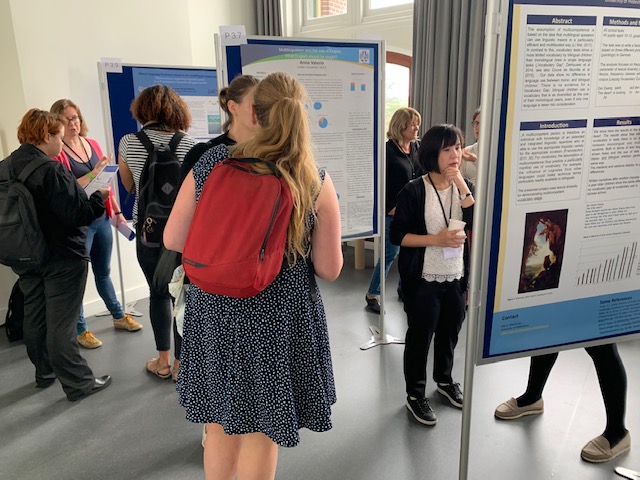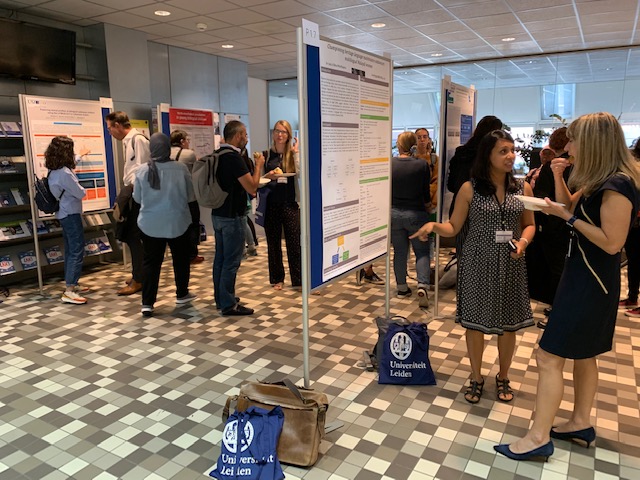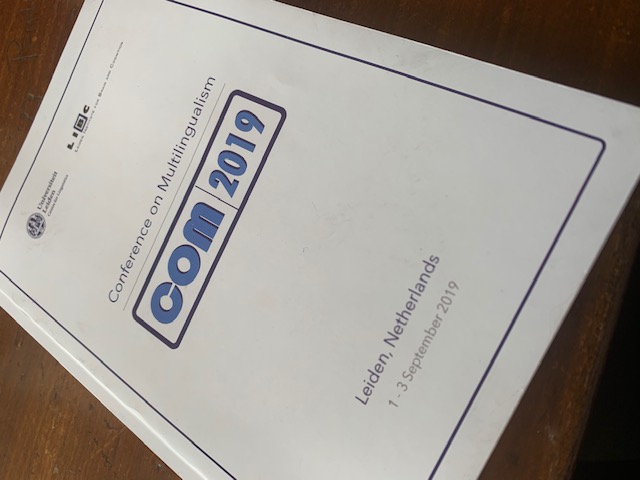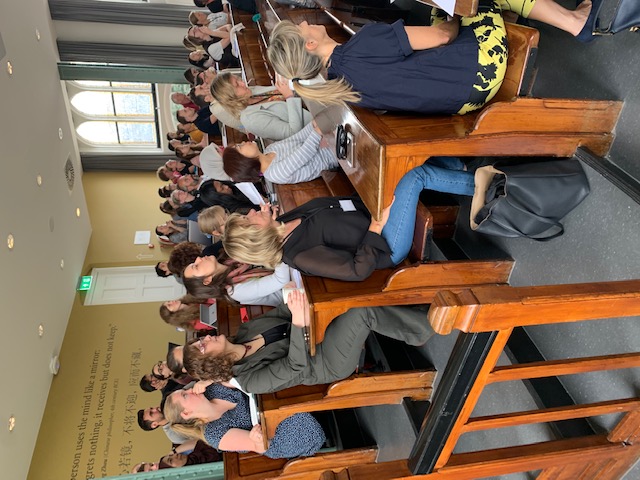
Conference on Multilingualism 2019: a bird's eye view
Over 80 speakers from around 15 different countries came together to discuss the latest developments in multilingualism during the Conference on Multilingualism 2019 (COM2019). This year’s conference was hosted by Leiden University Centre for Linguistics (LUCL) at Leiden University.
A short recap
On the 1st of September the conference kicked-off with talks focused on the general phenomenon of multilingualism. The following two days looked at subjects as wide-ranging as the implications for educational policies in multilingual schools and the neural mechanisms underlying the comprehension of multiple languages. From the iconic PJ Veth building, with a direct view of the gardens of Hortus botanicus Leiden, participants also listened to several keynote speakers discuss various aspects of multilingualism. The poster sessions featured, amongst other things, research investigating individual differences in bilingual speakers, multilingual language production and teaching practices.
Keynote speakers
The first keynote speaker, Ludovica Serratrice from the University of Reading discussed issues influencing reading abilities in bilingual children who speak English as an additional language at school. Kristin Lemhöfer from Radboud University presented her line of research exploring more natural settings for psycholinguistic experiments as an alternative for experiments conducted in the laboratory. Maria del carmen Parafita Couto (Leiden University) discussed the ability of multilingual speakers to switch between languages. Finally, Theo Marinis, also from the University of Reading, introduced a research project he is working on in rural India.
Photographs and (poster) presentations will be added to the COM2019 during the coming weeks, see: www.universiteitleiden.nl/multilingual-conference-com2019




